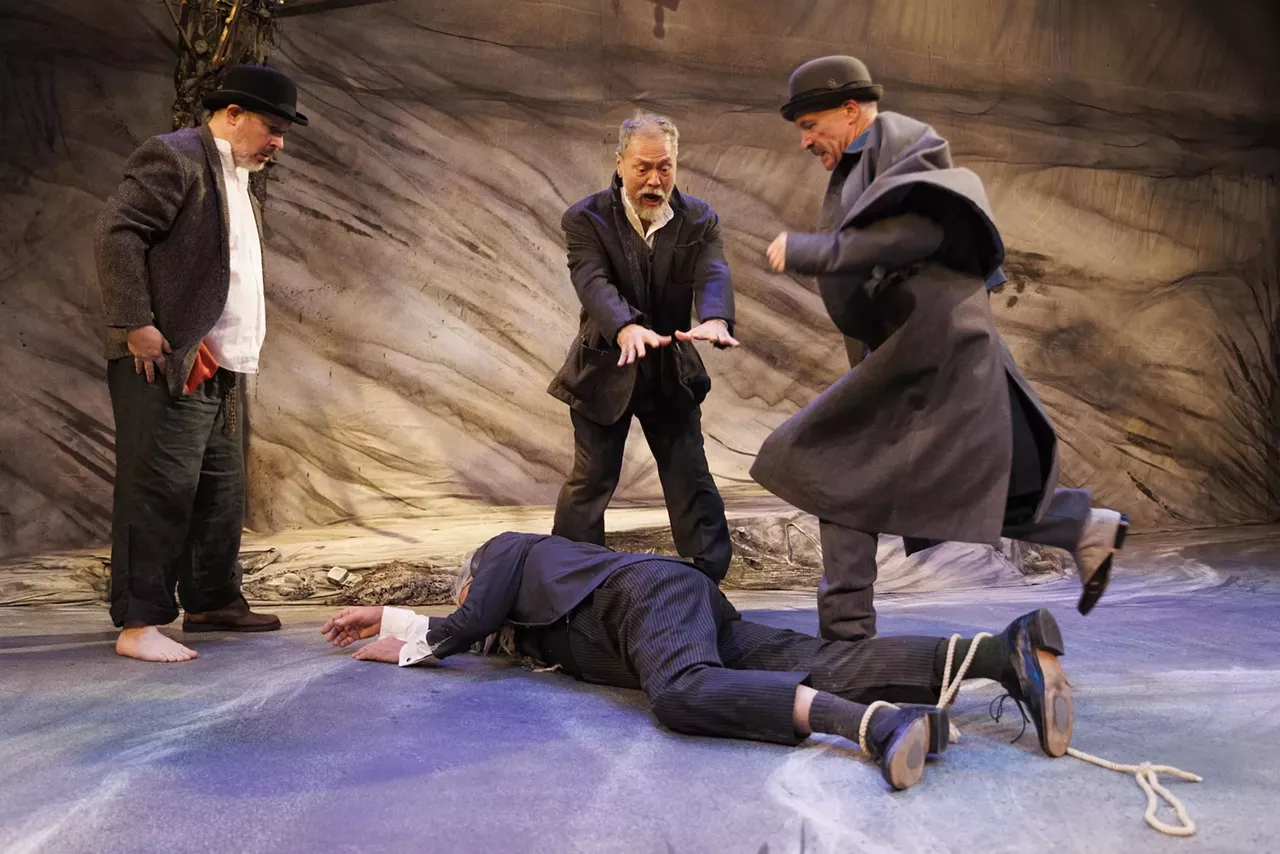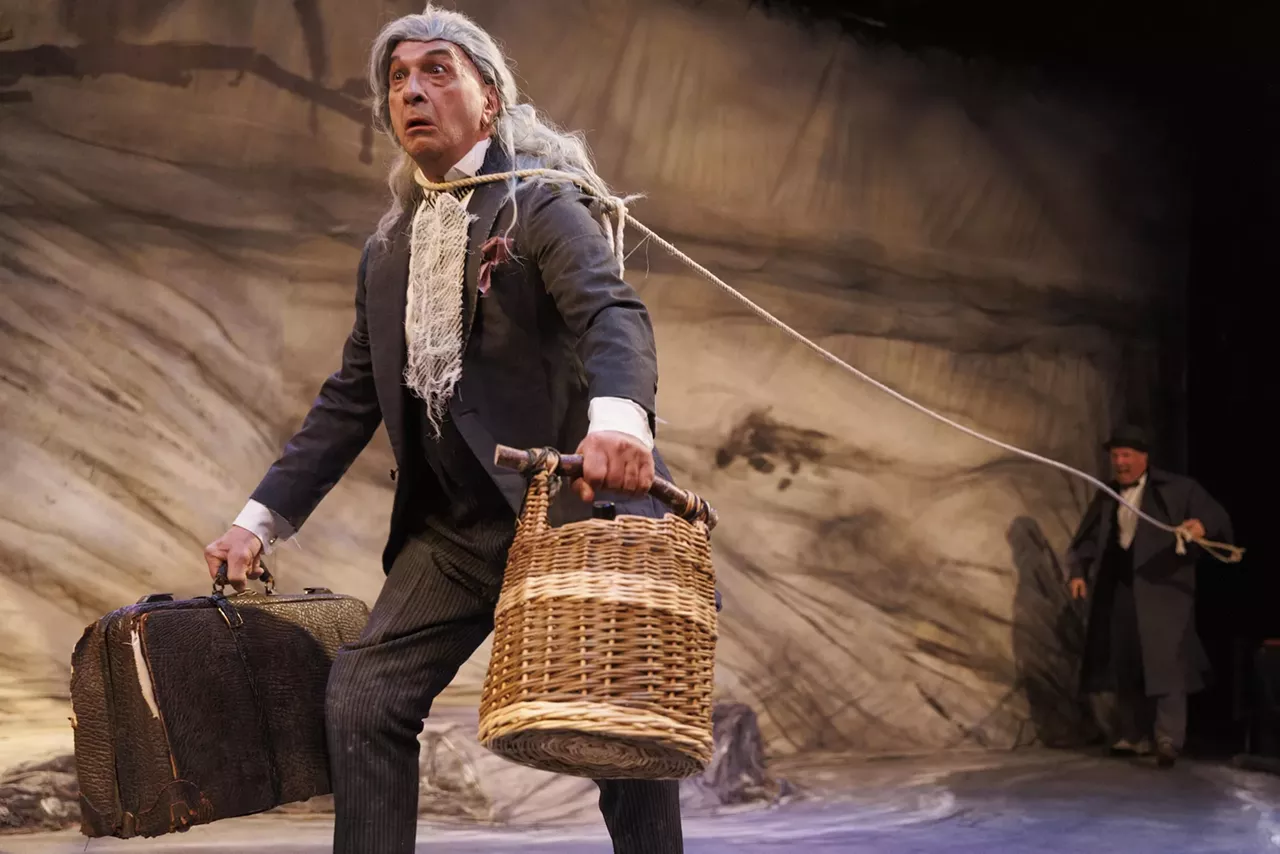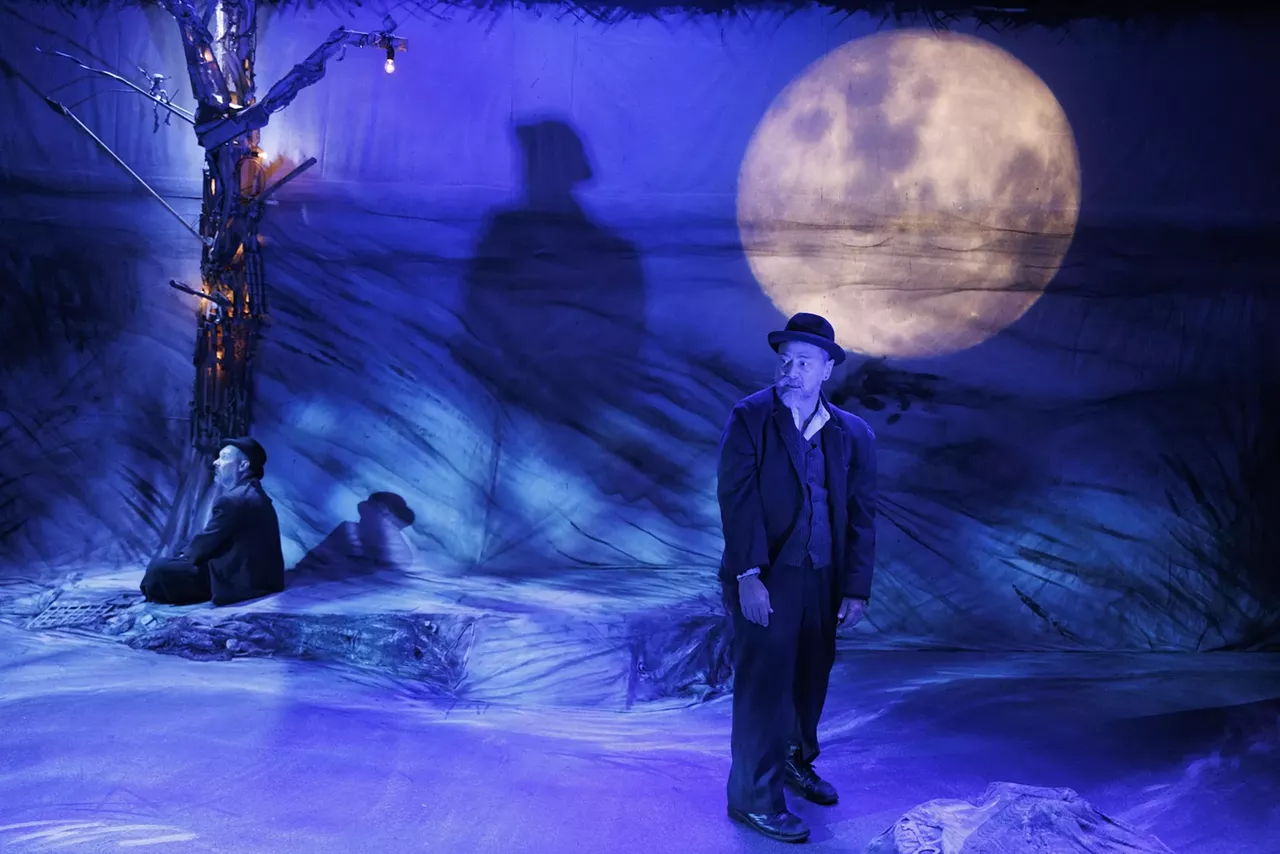Feature your business, services, products, events & news. Submit Website.
Breaking Top Featured Content:
Theater Review: Waiting for Godot Is Samuel Beckett—Straight, No Chaser
by John Rudoff
In the setting of a desolate landscape, two old men await someone named Godot. The duo, Vladimir (Roo Welsh) and Estragon (Karl Hanover), are friends to the extent that they use pet names for one another—Didi and Gogo—but their tones intermittently turn harsh or tender, as they recount their respective miseries and await their man. Questions about who Godot is and what he will do for them are barely raised, much less answered. They decide not to hang themselves. They eat a carrot.
One of the central plays of the 20th century, Samuel Beckett’s famously bleak comedy Waiting for Godot has been adapted, reinvented, and reimagined countless times, but Portlanders would do well to see Corrib Theatre’s faithful staging, which runs for the next two weekends at CoHo Theatre.

From left: Karl Hanover, Doren Elias (on the ground), Roo Welsh, and Jonathan Cullen (kicking) in “Waiting for Godot.” JOHN RUDOFF

Doren Elias (left) Jonathan Cullen (right) in “Waiting for Godot.” JOHN RUDOFF
Beckett was member of the French Resistance during the Nazi occupation and World War II and wrote Godot in the setting of a blasted, post-war Europe, and the work inhabits a setting informed by that time, but not exactly placed there. All of the action happens around a solitary tree paired with an unremarkable boulder, beneath the full moon.
It is in this empty place that Vladimir and Estragon encounter a wretched, enslaved man named Lucky (Doren Elias), leashed by rope to his vile, arrogant master, Pozzo (Jonathan Cullen), and subsequently strive to mitigate Pozzo’s casual cruelty. This fails, leading to one of Beckett’s most famous pieces: an unpunctuated soliloquy from Lucky—a sentence of over 700 words—performed with great pacing and physicality by Elias. After this, a character titled simply as “A Boy” (Max O’Hare) timidly enters to deliver a message that Godot won’t arrive that day, but will the next.
The eternal fascination of Godot—in which Estragon himself declares “nothing happens”—is that when the work is attentively staged, it offers us all the great existential questions of the 20th century. What do we do while waiting to be saved? Is it possible to maintain our dignity? Can we even speak and make sense?

Doren Elias as Lucky in “Waiting for Godot.” JOHN RUDOFF

Karl Hanover (left) and Roo Welsh (right) in “Waiting for Godot.” JOHN RUDOFF
These players have a notoriously difficult text, and they engage with each other flawlessly. The rhythms of speech and silence—of struggling to speak sensibly, but then soldiering forward—is all Beckett.
As Estragon, Hanover displays great range, from despair and abandonment to rage, joy, and revenge. Welsh shows a more cerebral Vladimir, but during opening night, his use of the script onstage somewhat impaired his projection of feeling. The non-sequitur conversation in Godot does not give an actor much cue to the next line—we could compare it to memorizing a string of random numbers—but we’re hopeful that in subsequent performances, Welsh will be off book because when he seemed in full command of the material, he was dazzling.
Director and University of California, Santa Cruz theater professor Patty Gallagher has succeeded in keeping Godot faithful to the text: This is pure Beckett—straight, no chaser. It’s worth noting that while the cast of this production is made up of men (Beckett infamously prohibited women playing roles in Godot), the entire production staff, from director to lighting, is run by women.
Corrib Theatre, a local company that focuses on Irish theater and playwrights, will use their entire 2024-25 season to respond to Beckett and Godot. It’s not difficult to see that in their next two productions, Pass Over by Antoinette Nwandu, which will be co-produced with the Historic Alberta House, and a short festival of “staged readings of plays inspired by Waiting for Godot that feature women and nonbinary people” slated for spring.
Waiting for Godot plays at Coho Theater, 2257 NW Raleigh, through December 15, Thurs-Sun 7:30 pm, Sun 2 pm, two hours with intermission, tickets here, recommended for ages 11 and up.
Continue Reading at PortlandMercury.com here
